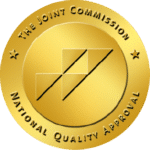Firefighters are often exposed to traumatic and dangerous situations during duty, and many of them experience Post Traumatic Stress Disorder (PTSD) as a result. PTSD can be a difficult condition to treat, but recent research suggests that the use of ketamine assisted therapy could offer a new option for healing firefighters who are struggling with PTSD and related mental health issues. This therapy could provide an effective way to reduce the symptoms of PTSD and help firefighters heal from the experiences they have encountered in their line of work. By understanding the potential benefits of ketamine assisted therapy, we can help ensure that firefighters have the right resources to access to best take care of their mental health.
What is PTSD?
PTSD is a mental health condition that is triggered by a traumatic experience, such as a firefighting incident, military combat, or sexual assault. PTSD may develop in response to the memory of the event or to anxiety that the individual experiences in anticipation of the event recurring. Those with PTSD may experience a range of emotional and physical symptoms, such as anger, irritability, guilt, insomnia, hypervigilance, avoidance, dissociation, and avoidance of activities and places that trigger symptoms. PTSD can have a severe impact on both the individual experiencing it and their loved ones. Some treatments for PTSD can help reduce the severity of certain symptoms, but there is no cure for PTSD.
What is ketamine assisted therapy?
Ketamine assisted therapy is a type of psychotherapy that uses ketamine as the main drug in the treatment. Ketamine is a general anesthetic that is often used during medical procedures. However, recent research suggests that it can be an effective treatment for a number of mental health conditions, including PTSD. During ketamine assisted therapy, the patient uses an intranasal spray to adminster ketamine. Once ketamine enters the bloodstream, it can act quickly to treat the underlying causes of PTSD, including the chemical changes that occur in the brain when the condition develops. Ketamine assisted therapy may be an effective treatment for PTSD due to its ability to rapidly ease symptoms related to discomfort and pain, especially during activities that trigger discomfort, such as hyperarousal, intrusive thoughts, and avoidance behaviors. This may explain why ketamine assisted therapy is so effective at helping people with PTSD quickly reduce symptoms such as anger, insomnia, and hypervigilance.
How does ketamine assisted therapy work?
Following a ketamine infusion, the patient’s body experiences a rush of chemicals that could help heal the brain and reduce the symptoms of PTSD. Ketamine causes the brain to experience a reduction in the activity of NMDA receptors. NMDA receptors are part of the memory and emotional processing in the brain, and a reduction in this activity may help repair the damage that occurs during a traumatic experience. Studies have also found that ketamine may also improve the communication between areas of the brain that are involved in emotion and cognitive function, such as memory and thinking. When people with PTSD have changes in the communication between these areas of the brain, PTSD symptoms such as difficult or intrusive memories, hyperarousal, avoidance, and feelings of sadness and loneliness may be related to the brain functioning.
What are the benefits of ketamine assisted therapy?
Although there are a number of potential benefits of ketamine assisted therapy, one of the most notable is the potential to reduce the symptoms of PTSD. Ketamine has been shown to help reduce the symptoms of PTSD that occur during emotional arousal, such as anger, sadness, and hyperarousal. Because ketamine has been shown to help ease the discomfort and emotional pain of PTSD, people with PTSD may also find that they are better able to continue participating in activities that are important to their lives. Reduced avoidance behaviors may also help people with PTSD to feel less lonely and less sad.
What is the evidence that ketamine assisted therapy works in treating PTSD?
Several studies have looked at the effectiveness of ketamine assisted therapy for treating PTSD. One study that looked at the effectiveness of ketamine for treating firefighters with PTSD found that after two sessions of ketamine treatment, participants reported a significant decrease in the intensity of their PTSD symptoms. The psychological benefits of ketamine treatment were also found to continue after participants had received the ketamine treatment. While one study can’t provide definitive evidence that ketamine assisted therapy works, the results are promising, showing that ketamine may be an effective treatment option for people struggling with PTSD.
What are the potential risks of ketamine assisted therapy?
Like any drug or therapy, ketamine has the potential to have side effects and may not be suitable for everyone. Individuals who are considering ketamine assisted therapy should discuss their options with their doctor, as ketamine could also be used to treat individuals with other mental health conditions. While ketamine has been shown to be effective in treating PTSD and anxiety, it may not be a good option for individuals with a high risk of suicidal thoughts and behavior. Another potential risk of ketamine assisted therapy is experiencing an adverse reaction to the drug. While ketamine is a well-studied drug, and most side effects are related to its use during surgery, it is possible for someone to experience an adverse reaction to the drug during treatment for PTSD. People who experience side effects while on ketamine treatment should immediately seek medical attention.
What are the challenges of implementing ketamine assisted therapy?
Because ketamine is a comparatively new treatment option, there are few resources that provide information and resources on how to access ketamine assisted therapy. In order to effectively implement ketamine assisted therapy into the healthcare system, health insurance providers and providers will need to be educated on the potential benefits and risks of ketamine treatment. The implementation of ketamine treatment may also be challenging for healthcare providers who are not familiar with the drug or who are not comfortable administering it. Some treatment programs that provide ketamine assisted therapy may require that participants travel to a location where the drug is available and administered at the program site. This could pose a challenge for people who live in rural areas or who may not have access to these resources.
Conclusion: Exploring the Benefits of Ketamine Assisted Therapy for PTSD
Ketamine assisted therapy could be an effective treatment option for firefighters who are suffering from PTSD and other mental health conditions. In order to fully explore the potential benefits of ketamine assisted therapy, more research is needed to fully understand the mechanisms by which ketamine works and whether these are lasting effects. Ketamine could be an effective treatment option for PTSD, but more research is needed to fully explore this potential benefit.










